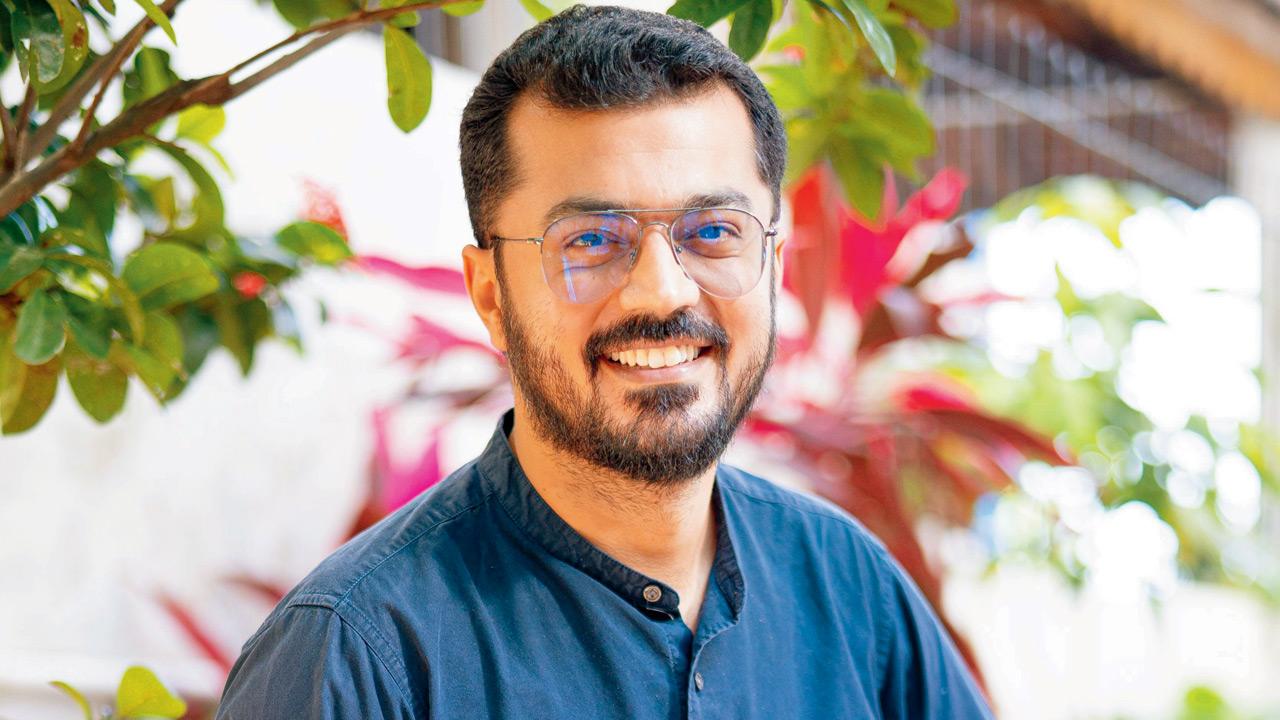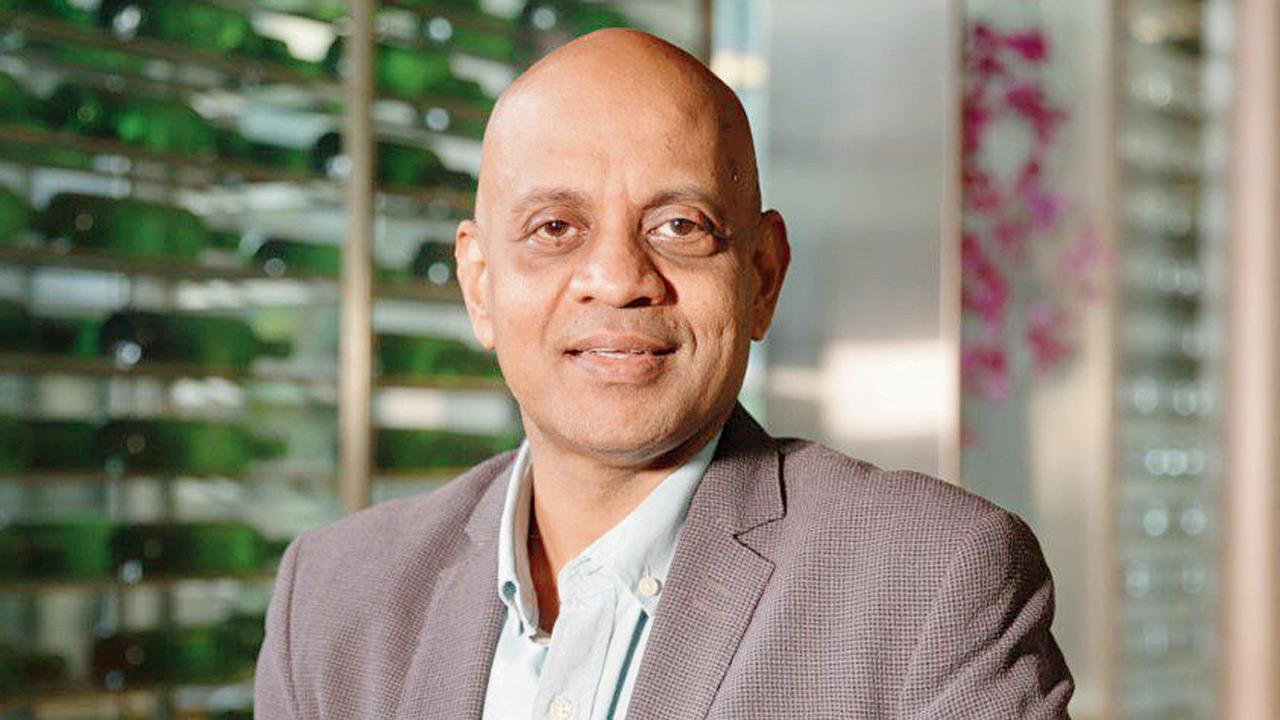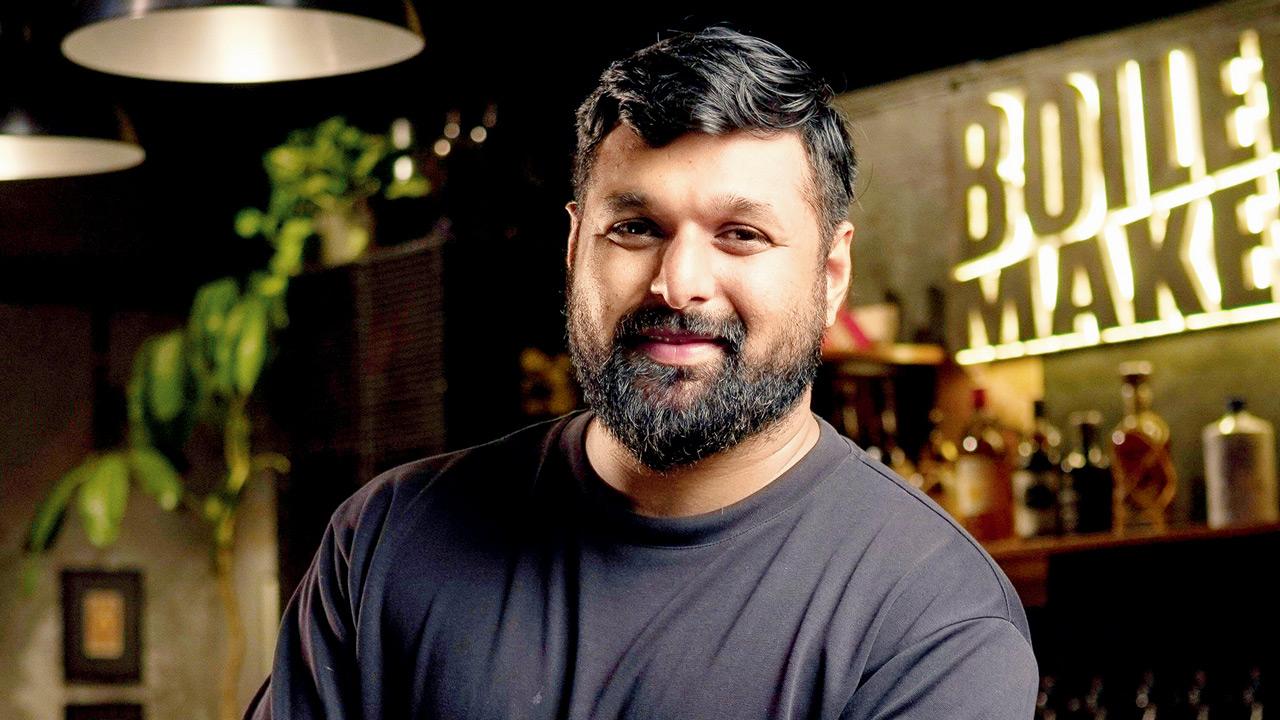As India’s bartenders gain recognition, events like bar takeovers and competitions play a crucial role in their development, showcasing creativity and inspiring new ideas that elevate the profession

Representation pic
In October, at the Pistola Duels II finals in Mumbai, talented bartenders from India, Thailand, and Singapore were tasked with creating a cocktail using agave-based products. The competition—which kicked off with two social media rounds where contestants were judged on practicality, innovation, presentation, and digital reach—saw nearly 150 participants. Eight semi-finalists per country advanced to a head-to-head duel at their respective bars, where they competed to attract consumers to their cocktail creations.
ADVERTISEMENT

The top four from each country competed in the finale, with an impromptu market hunt for ingredients and a quiz on their knowledge of the agave spectrum. These exchanges fostered learning, collaboration, and inspiration from diverse cultural and culinary backgrounds. The Loft’s Dushyant Tanwar’s winning mix was a coffee-infused Manhattan with citrus notes from oranges and spice route bitters, complementing the flavours of Pistola Añejo. Singapore’s Wee Siong from Smoke and Mirrors’ winning cocktail was a Pistola Reposado Milk Punch with Indian, Malay and Chinese flavours. And Thailand’s Natkrit Chatsakpairach from Jhol Bangkok’s winning drink was a Pistola Reposado cocktail with asparagus, kokum, Campari, coconut water, Thai jasmine tea syrup, lemon and a bright yuzu curry leaf foam.

Anand Virmani
The final round was evaluated by a jury of industry experts, including Pankaj Balachandran, Co-Founder, CountertopIndia; Shatbhi Basu, Founder, STIR Bartending Academy; Vikram Achanta, Founder and CEO, Tulleeho and 30BestBarsIndia; columnist Smitha Menon; and food and travel journalist Aatish Nath. The winners won an all-inclusive trip to Paris to participate in a guest shift at the Pistola Bar for the prestigious Top 500 Bar Awards ceremony in November.
Pistola Duels is one of the many significant bartender competitions instrumental in shaping the industry in the country and a prime example of how these events foster creativity and skill. Kimberly Pereira, Chief Operating Officer at Maya Pistola Agavepura, which hosted the Pistola Duels cocktail competition, highlights the role these events play in raising the profile of bartenders. “The stigma surrounding bartending has significantly diminished, with an increasing number of brands and bars supporting these competitions,” says Pereira, adding, “In the first year, the competition was India-focused; in year two, we expanded to Thailand and Singapore, covering three countries and six Indian states. Our goal has been to create an inclusive platform for bartenders at all levels to showcase their creativity. Based on feedback we received last year, we simplified the participation process and extended timelines. This year’s grand prize—a trip to Paris to attend the 500 Best Bars awards—added a new layer of aspirational value.”

Vikram Achanta
Pereira attributes this surge in interest to several factors, including post-pandemic travel, which has expanded consumer palates and heightened expectations for high-quality experiences in even the smallest cities. “Additionally, bartenders are now seeking education abroad and returning home with fresh perspectives and techniques that raise the standards of local bars,” she adds, “Bartending competitions play a critical role in providing them a platform to showcase their creativity while offering them opportunities to network and learn from peers—everyone wins.”
Interestingly, Achanta’s vision to establish an objective platform celebrating India’s best bars gave rise to the 30BestBarsIndia list in 2019, a ranking that has become a benchmark for excellence in the industry. The platform has shed light on established bars and showcased emerging talent, driving a surge in bar culture across the country. The rankings are determined through an extensive voting process involving an expert jury of 75 members and over 250 jury members nationwide. This ensures that the rankings are comprehensive, unbiased, and reflect the diverse tastes and cultures within the Indian bar scene.

Kimberly Pereira
Achanta recounts how it was born out of a deep desire to offer a space where bar talent could be celebrated and the industry could be assessed based on clear, impartial standards. “When we first launched 30BestBarsIndia, the concept was met with excitement and scepticism,” Achanta recalls. “The industry, although growing, was still viewed through a limited lens. There was no clear platform to identify and celebrate the rising stars in this field. We wanted to change that and create a space that truly reflected the quality of bars and the bartenders’ skills. With 48 new bars entering the rankings this year alone, the rapid development of bars across metro cities and smaller towns is reflective of the industry’s dynamic growth.
Achanta’s vision has uplifted the industry and inspired other countries to adopt similar platforms, cementing India’s place in the global bar scene. He highlights that a bar’s success lies in creating a cohesive experience. “It’s about synergy where everything—from the design to the drinks—comes together seamlessly,” he says. With the rise of craft cocktails and the use of local ingredients, bars are no longer places to drink—they’re spaces for cultural exploration, storytelling, and top-tier hospitality. The use of hyperlocal ingredients and collaboration with artisans has deepened the experience, offering customers a taste of local culture alongside their cocktails.

Pankaj Balchandaran, Co-Founder, CountertopIndia
Another competition pushing the boundaries of bartending is Bar Wars. In 2024, the competition took place in nine cities—Pune, Mumbai, Hyderabad, Kolkata, Bengaluru, Delhi, Jaipur, and Gurgaon, with grand the finale in Goa. The competition celebrates bar teams with a unique consumer-driven judging process, focusing on bartenders and servers. Bars submit 60-second Instagram videos, from which the top 90 bartender-server duos are selected. In each city qualifier, teams compete in a 75-minute challenge to deliver the best service and sell the most cocktails. Winners took home R2 lakh and an international bar takeover in Dubai.
Events such as Diageo World Class India, and the Indian Bartender Championship have become pivotal milestones. These competitions too allow bartenders to gain recognition, expand their networks, and engage with global peers. More than just contests, these events create a sense of community, fostering collaboration among bartenders who have often worked in isolation.
Anand Virmani, Co-founder, NAO Spirits, creators of Greater Than and Hapusa gins, reflects on how far the industry has come. When he started in 2010, bartenders often worked in isolation, lacking community and connecting opportunities. Today, the scene is entirely different. Bartenders actively network, visit each other’s bars, and share knowledge freely.
“It’s no longer just about making drinks; it’s about creating connections and learning from each other,” says Virmani, adding, “This collaborative spirit has helped bartenders grow and elevated the industry as a whole. India’s bartending culture has evolved alongside global trends, with consumers embracing everything from craft beers and artisanal spirits to creative cocktails and mocktails. This shift in consumer tastes is primarily attributed to bartenders gaining the recognition they deserve and has sparked a cultural shift in the industry.”
Once seen simply as service providers, bartenders are now celebrated as creators, innovators, and cultural ambassadors. This change is evident in both their increasing salaries and the respect they command. A decade ago, bartenders earned between Rs 15,000 and Rs 20,000 per month. Today, top-tier bartenders and consultants can earn over Rs 1 lakh, with industry leaders commanding even higher fees,” says Virmani, “As the profession matures, bartenders are gaining both professional recognition and financial rewards that reflect their expertise. Bartenders are now seen as skilled artisans—much like chefs—and the industry has noticed.”
Virmani also shares the rise of bartender-entrepreneurs as another breakthrough. “Bars like Outrigger, Soka, and Sidecar in Goa have been established by bartenders who are deeply invested in their craft, signalling a shift towards ownership and creative control, he adds. Earlier this year, Yangdup Lama of Sidecar, Delhi, was awarded the prestigious Roku Industry Icon Award at Asia’s 50 Best Bars 2024, becoming the first Indian to receive this honour. This international recognition acknowledges his exceptional craft and his significant contribution to the global cocktail industry.
Mentorship is increasingly being recognised as a critical element in the growth of bartenders in India. Balachandran, emphasises the importance of competitions and events in helping bartenders stand out in a field that’s often overlooked. They inspire creativity, encourage innovation, and help bartenders develop their unique style and offer a chance to connect with peers worldwide, raising the industry’s standards and providing opportunities to learn new techniques and trends. He stresses that a mentor is invaluable in challenging, guiding, and inspiring bartenders. “Without mentorship, even the most talented bartenders risk stagnation,” he explains. In a field driven by creativity and innovation, having someone to push you is essential for continuous growth.
Some venues in India like Sidecar, Soka and Outrigger, have embraced structured mentorship programmes, where experienced bartenders guide newcomers, ensuring that they not only master cocktail recipes but also learn the art of hospitality and storytelling that makes a great bartender. This mentorship culture is helping to build a more collaborative industry where both veterans and newcomers can thrive.
Even brands play an important role in offering training and mentorships. For instance, since 2009, Diageo has empowered and inspired over four lakh bartenders globally through its World Class platform, which offers training and mentorship that elevates the craft and fosters innovation. This initiative has played a pivotal role in shaping the fine drinking experience, much like fine dining. It continues to influence the future of cocktails through new possibilities. Pernod Ricard’s initiative, The Bar World of Tomorrow (BWOT) programme has now trained over 6,400 bartenders.
B esides competitions, bar takeovers—events where a bartender temporarily takes over another bar’s operations—are another exciting development in the industry. These enable bartenders to work out of their comfort zone, experiment with new ideas, and present fresh concepts to customers, keeping the bar scene dynamic and innovative by connecting global and local bar cultures, enhancing India’s nightlife scene with world-class experiences.
A few interesting ones in recent memory were Little Red Door, a Paris-based cocktail bar ranked among the world’s top 50. It brought its signature cocktails to PCO in New Delhi in March, offering patrons a taste of Parisian mixology. Meanwhile, Tell Camellia from Hong Kong captivated Mumbai’s crowd at Social, Colaba with unique tea-based cocktails, blending global creativity with local flavours. In Goa, Bar Tesouro, ranked in Asia’s Top 50 Bars, hosted international guest shifts showcasing creative concoctions like Midnight Brekkie, highlighting Goa’s rising prominence on the global mixology scene.
As India’s bar scene evolves, the future looks promising for creativity and craftsmanship. This shift toward viewing bartenders as respected artisans, similar to chefs, is an exciting milestone. However, the journey is still ongoing. The industry must continue to focus on improving formal education, raising standards, and reshaping consumer perceptions. The profession is poised for continued growth with the rise of bartender entrepreneurs, competitions, and mentorship opportunities. The future promises a time when bartenders are celebrated for their innovation and skill, not just their ability to mix drinks. Virmani says, “Bartending is no longer just a job—it’s a respected profession. The recognition we’re seeing today is just the beginning.”
Crafting Creativity Under Pressure
For bartenders like Natkrit Chatsakpairach from Jhol, Thailand, pressure in competitions is not something to fear but an opportunity for growth. “I focus on the purpose behind my craft, reminding myself who I’m doing this for,” he shares. Similarly, Dushyant Tanwar from The Loft in India believes confidence is key to thriving under pressure. “When you manage the pressure, you come out on top,” he says.
Wee Siong from Smoke & Mirrors, Singapore, sees pressure as a catalyst for innovation, pushing bartenders to think more creatively and explore new techniques. Whether discovering new ingredients or experimenting with unique flavour combinations, these competitions allow bartenders to step outside their comfort zones and redefine the boundaries of mixology.
Bar competions to look out for in 2025
ProWine Mumbai
TASK: To craft creative, fresh, and one-of-a-kind agave based cocktails.
PRIZE: Cash prize, ProWine certification, a chance for a bar takeover at a leading international bar.
Monin Cup, India
TASK: To craft innovative drinks and elevate their beverage creations into the realm of storytelling.
PRIZE: An all-expense paid trip to France for MONIN Cup Finals.
The Happy High’s Young Bartender Challenge
TASK: Young students must showcase their themed cocktails to the jury over two rounds.
PRIZE: Cash prize of R15,000 for gold medal winner among others.
Campari Red Hand, Asia
TASK: To create original cocktails that contain a minimum of three centiliters of Campari.
PRIZE: Cash prize and an all-expense-paid trip to compete for the title of Campari Red Hand in London.
 Subscribe today by clicking the link and stay updated with the latest news!" Click here!
Subscribe today by clicking the link and stay updated with the latest news!" Click here!







